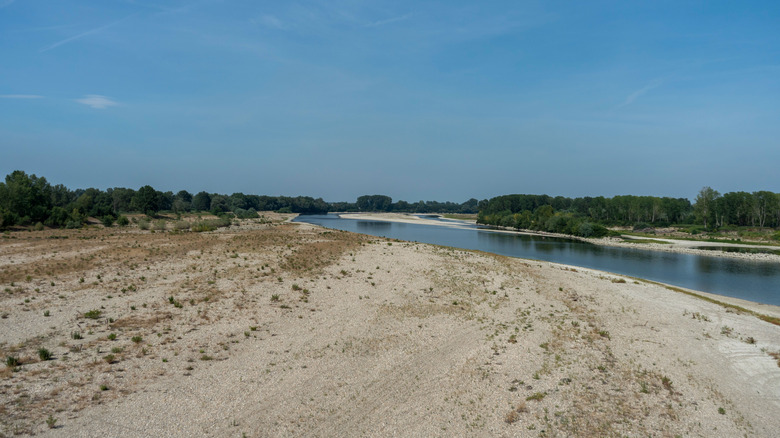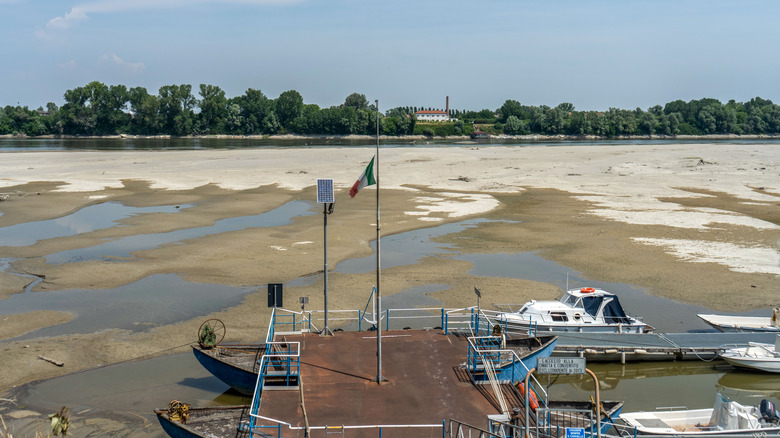The Po Valley Drought Has Become A Major Concern For Italian Farmers
What's for dinner tonight? Considering the average U.S. consumer puts away roughly 19 pounds of pasta every year (per Food Business News), there's a good chance the answer is: "Italian."
According to the International Trade Administration, Italy is one of the largest agricultural producers in the European Union. Italian land is responsible for the olive oil, durum wheat, grains for pasta, and the world-famous wine grapes consumers around the globe know and love. Whether you're sipping Zinfandel in Tuscany or digging into a plate of bucatini in Chicago, we largely have Italy's Po river basin to thank. The Po is Italy's longest river, spanning 405 miles from the Alps to the Adriatic Sea, according to Britannica. Its drainage basin, however, covers a much larger scope: a whopping 27,062 square miles of fertile land rely on the Po for irrigation.
Now, though, the Po is in trouble, and with it the agricultural staples that make Italy the unofficial food center of the world. If you're watching Stanley Tucci's new travel series "Searching for Italy," it looks like you might have to do some more searching: Italy's Po river is disappearing.
Crop beds are being replaced by surfacing shipwrecks
Meuccio Berselli, secretary general of the Po River Basin Authority, explains the severity of the situation. "We are in a situation where the river flow is approximately 300 cubic meters (80,000 gallons) per second here in (the riverside village of) Boretto, while normally in this area we have almost 1800 (cubic meters, 476,000 gallons)," Berselli says, via AP News. The river is so low, in fact, that sunken ships are visibility resurfacing, and folks in Italy are walking on-foot across the newly exposed sandy river bottom, per the news outlet. EuroNews reports that this is the worst drought the Po river has seen in 70 years. Tanker tanks have been dispatched to provide water because reservoirs have already been depleted.
According to Berselli, snowfall has lowered by 70% and it hasn't rained in over 110 days. Although the rain that has fallen so far during the month of June has been substantial, it was concentrated to an area that didn't reach the Po or its aquifers. 125 towns in the vicinity of the Po river valley have been asked by Utilititalia, a federation of over 500 Italian water companies, to ration their water usage by suspending drink-water resources during the nighttime, reports The Guardian. Now, farmers are banking on sudden rainfall or considering outsourcing to access the water they and their crops so desperately need.

